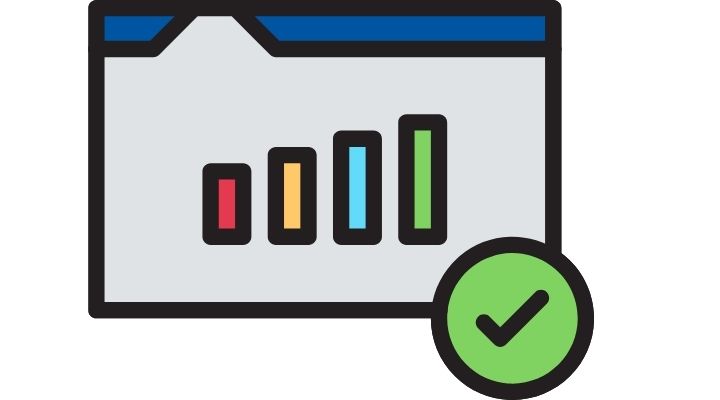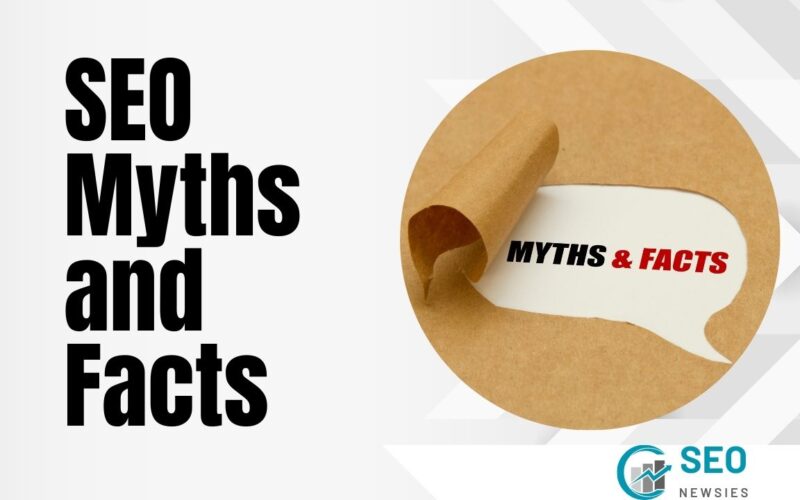As you navigate the ever-evolving landscape of digital marketing, separating SEO fact from fiction becomes increasingly crucial. In 2024, the world of search engine optimization continues to be rife with misconceptions and outdated beliefs. Whether you’re a seasoned marketer or a business owner looking to boost your online presence, understanding the current realities of SEO is essential for success. This article will debunk common myths and highlight proven facts, empowering you to make informed decisions about your SEO strategy. By the end, you’ll have a clearer picture of what truly matters in the realm of search engine optimization today.
What are the Most Common SEO Myths?
In the ever-evolving world of search engine optimization, it’s crucial to separate fact from fiction. Let’s debunk some of the most persistent SEO myths and facts that continue to circulate in 2024.

“More Keywords Equals Better Rankings”
One of the most enduring SEO myths is that stuffing your content with keywords will boost your rankings. In reality, search engines have become sophisticated enough to recognize and penalize this practice. Quality content that naturally incorporates relevant keywords is far more effective.
“SEO is a One-Time Effort”
Another common misconception is that SEO is a set-it-and-forget-it task. The truth is, SEO requires ongoing effort and adaptation. Search algorithms are constantly changing, and your strategy needs to evolve accordingly.
“Social Media Doesn’t Affect SEO”
While social media signals aren’t direct ranking factors, they can indirectly impact your SEO. Social shares can increase visibility, drive traffic, and potentially lead to backlinks – all of which contribute to improved search rankings.
“Meta Descriptions Directly Influence Rankings”
Many still believe that meta descriptions are crucial for rankings. In fact, they don’t directly affect search rankings. However, well-crafted meta descriptions can improve click-through rates, which indirectly benefits your SEO performance.
Understanding these SEO myths and facts is essential for developing an effective, long-term optimization strategy. By focusing on proven techniques and staying informed about algorithm updates, you can achieve sustainable improvements in your search engine visibility.
Fact vs Fiction: Debunking Common SEO Myths
In the ever-evolving world of search engine optimization, separating SEO myths and facts can be challenging. Let’s explore some common misconceptions and uncover the truth behind effective SEO practices.
Content is King, But Context is Queen
While it’s true that high-quality content remains crucial, context plays an equally important role. Search engines now consider user intent and the overall relevance of your content. Focus on creating comprehensive, well-researched pieces that address your audience’s needs and questions.
The Myth of Keyword Density
Gone are the days of stuffing keywords into your content. Modern SEO favors natural language and semantic relevance. Instead of fixating on a specific keyword density, concentrate on crafting engaging, informative content that incorporates relevant terms organically.
Mobile-First Isn’t Everything
While mobile optimization is critical, it’s not the only factor. A holistic approach considering both desktop and mobile users is essential. Ensure your site provides a seamless experience across all devices to maximize your SEO potential.
Link Building: Quality Over Quantity
The notion that more backlinks automatically lead to better rankings is outdated. Search engines prioritize high-quality, relevant links from authoritative sources. Focus on building meaningful relationships and creating link-worthy content rather than pursuing quantity at the expense of quality.
By understanding these SEO myths and facts, you can develop a more effective strategy that aligns with current best practices and search engine algorithms.
The Truth About Keyword Stuffing and Black Hat Tactics
In the ever-evolving world of SEO, myths and facts often intertwine, leaving many website owners confused about best practices. One persistent myth is the effectiveness of keyword stuffing and other black hat tactics. Let’s separate fact from fiction and explore why these methods are not only ineffective but potentially harmful to your SEO efforts.
The Downfall of Keyword Stuffing
Keyword stuffing, once a popular tactic, involves cramming as many keywords as possible into your content. However, search engines have become increasingly sophisticated, easily detecting and penalizing this practice. In fact, overusing keywords can make your content appear spammy and unnatural, driving away both search engines and readers.
Black Hat Tactics: A Risky Gamble
Other black hat SEO tactics, such as hidden text, cloaking, and link farms, may promise quick results but come with severe consequences. Search engines are constantly updating their algorithms to identify and penalize these deceptive practices. Engaging in black hat tactics can result in your site being demoted in search rankings or even removed from search results entirely.
The Path to Sustainable SEO Success
Instead of resorting to these risky methods, focus on creating high-quality, valuable content that naturally incorporates relevant keywords. Develop a comprehensive SEO strategy that aligns with search engine guidelines and prioritizes user experience. By doing so, you’ll build a strong foundation for long-term success in the ever-changing landscape of SEO myths and facts.
Does PageRank Still Matter in 2024?

The Evolution of PageRank
PageRank, once the cornerstone of Google’s search algorithm, has undergone significant changes since its inception. In 2024, its direct influence on search engine optimization (SEO) has diminished, but its underlying principles remain relevant. Understanding the role of PageRank in modern SEO is crucial for dispelling SEO myths and facts.
The Current State of PageRank
While Google no longer publicly updates PageRank scores, the concept of link equity distribution continues to play a role in search rankings. Today, PageRank has evolved into more sophisticated link analysis algorithms. These newer systems consider factors beyond just the number of inbound links, such as the relevance and authority of linking domains.
Focusing on Quality Over Quantity
In the current SEO landscape, the quality of backlinks far outweighs their quantity. Rather than chasing high PageRank scores, focus on earning links from reputable, relevant sources. This approach aligns with Google’s emphasis on providing valuable, user-centric content. By prioritizing genuine engagement and authoritative connections, you’ll be better positioned to navigate the complex world of SEO myths and facts in 2024 and beyond.
Actionable SEO Tips Based on Facts, Not Myths
Focus on User Experience
In 2024, user experience remains paramount for SEO success. Prioritize creating high-quality, relevant content that addresses your audience’s needs. Optimize your website’s loading speed and ensure mobile responsiveness to improve user satisfaction and search rankings.
Embrace Semantic Search
Understanding semantic search is crucial in debunking SEO myths and facts. Rather than fixating on exact keyword matches, focus on creating comprehensive content that covers related topics and answers user questions. This approach aligns with how search engines interpret context and user intent.
Leverage Quality Backlinks
Despite some myths, backlinks continue to be a significant ranking factor. However, quality trumps quantity. Concentrate on earning authoritative, relevant backlinks through creating valuable content and building genuine relationships within your industry.
Optimize for Voice Search
As voice-activated devices become more prevalent, optimizing for voice search is increasingly important. Structure your content to answer specific questions and use natural language patterns to align with voice query formats.
By focusing on these factual SEO strategies, you’ll be better equipped to navigate the ever-evolving digital landscape and avoid falling prey to outdated myths or misconceptions about search engine optimization.
Conclusion
As you navigate the ever-changing landscape of SEO in 2024, it’s crucial to separate fact from fiction. By dispelling common myths and embracing proven strategies, you’ll be better equipped to optimize your website effectively. Remember that SEO is an ongoing process that requires patience, adaptability, and a commitment to quality content. Stay informed about algorithm updates, focus on user experience, and prioritize mobile optimization. While there’s no magic formula for instant success, consistently applying best practices and avoiding outdated tactics will help you achieve sustainable growth in search rankings. As the digital world evolves, so too must your SEO approach – always be willing to learn, test, and refine your strategies.
See Also: Link Building Guide: The Proven Strategies to Boost SEO Rankings

